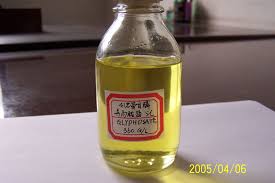I remember that!As recently as late December, Monsanto was named “company of the year” by Forbes magazine. Last week, the company earned a different accolade from Jim Cramer, the television stock market commentator. “This may be the worst stock of 2010,” he proclaimed.
 The month after Forbes did that,
Covalence did a survey that ranked Monsanto
the least ethical company in the world.
Worse than Philip Morris, Chevron, or Halliburton!
The month after Forbes did that,
Covalence did a survey that ranked Monsanto
the least ethical company in the world.
Worse than Philip Morris, Chevron, or Halliburton!
About that time we discovered Monsanto Corn Causes Liver and Kidney Damage in Rats, and that Monsanto’s GM soy causes sterility and five times higher infant mortality in hamsters.
Meanwhile, the
U.S. Department of Justice was
investigating Monsanto’s seed business. At least
seven U.S. states started their own
investigations, and later the U.S. EPA fined
Monsanto $2.5 million for selling seeds illegally in Texas counties where
they were banned.
Anyway, could all this bad news have some effect on Monsanto’s share price?
The latest blow came last week, when early returns from this year’s
harvest showed that Monsanto’s newest product, SmartStax corn, which
contains eight inserted genes, was providing yields no higher than the
company’s less expensive corn, which contains only three foreign genes.
Monsanto has already been forced to sharply cut prices on SmartStax and
on its newest soybean seeds, called Roundup Ready 2 Yield, as sales fell
below projections.
Until now, Monsanto’s main challenge has come from opponents of
genetically modified crops, who have slowed their adoption in Europe and
some other regions.
 Since then we’ve learned that
Pesticides Linked to ADHD.
Specifically organophosphate pesticides.
Like Glysophate (RoundUp).
And that indicators of pesticides, including organophosphates,
are found in the urine of 95% of school children.
We already knew that
Glysophoate causes birth defects in humans.
Since then we’ve learned that
Pesticides Linked to ADHD.
Specifically organophosphate pesticides.
Like Glysophate (RoundUp).
And that indicators of pesticides, including organophosphates,
are found in the urine of 95% of school children.
We already knew that
Glysophoate causes birth defects in humans.
As I noted back in May when Monsanto’s price dropped,
“I think that’s CEO-speak for demand is down, competition is up, and
Monsanto is retrenching in hopes of saving its core glysophate business.”
 The company’s stock, which rose steadily over several years to peak at
around $140 a share in mid-2008, closed Monday at $47.77, having fallen
about 42 percent since the beginning of the year. Its earnings for the
fiscal year that ended in August, which will be announced Wednesday,
are expected to be well below projections made at the beginning of the
year, and the company has abandoned its profit goal for 2012 as well.
The company’s stock, which rose steadily over several years to peak at
around $140 a share in mid-2008, closed Monday at $47.77, having fallen
about 42 percent since the beginning of the year. Its earnings for the
fiscal year that ended in August, which will be announced Wednesday,
are expected to be well below projections made at the beginning of the
year, and the company has abandoned its profit goal for 2012 as well.
Maybe this is why Monsanto
apparently hired Blackwater, excuse me, Xe, or, rather, its affiliate
Total Intelligence, “to provide operatives to infiltrate activist groups
organizing against the multinational biotech firm.”
 But there is more. Sales of Monsanto’s Roundup, the widely used
herbicide, has collapsed this year under an onslaught of low-priced
generics made in China. Weeds are growing resistant to Roundup, dimming
the future of the entire Roundup Ready crop franchise. And the Justice
Department is investigating Monsanto for possible antitrust violations.
But there is more. Sales of Monsanto’s Roundup, the widely used
herbicide, has collapsed this year under an onslaught of low-priced
generics made in China. Weeds are growing resistant to Roundup, dimming
the future of the entire Roundup Ready crop franchise. And the Justice
Department is investigating Monsanto for possible antitrust violations.
But on with the NY Times story:
That’s probably not helped by the news that the best way to profit by GM corn is not to grow it.Now, however, the skeptics also include farmers and investors who were once in Monsanto’s camp.
“My personal view is that they overplayed their hand,” William R. Young, managing director of ChemSpeak, a consultant to investors in the chemical industry, said of Monsanto. “They are going to have to demonstrate to the farmer the advantage of their products.”
Especially when Roundup no longer stops the mutant pigweed which it bred. Instead, plowing the pigweed under in the fall and planting a winter cover crop allows eliminating the pigweed without paying for RoundUp.
Haiti has rejected Monsanto seeds and thus the pesticide poisons that come with them. Maybe the rest of the world is starting to follow.
So sad for Monsanto. So good for the rest of us.
-jsq
Short Link: